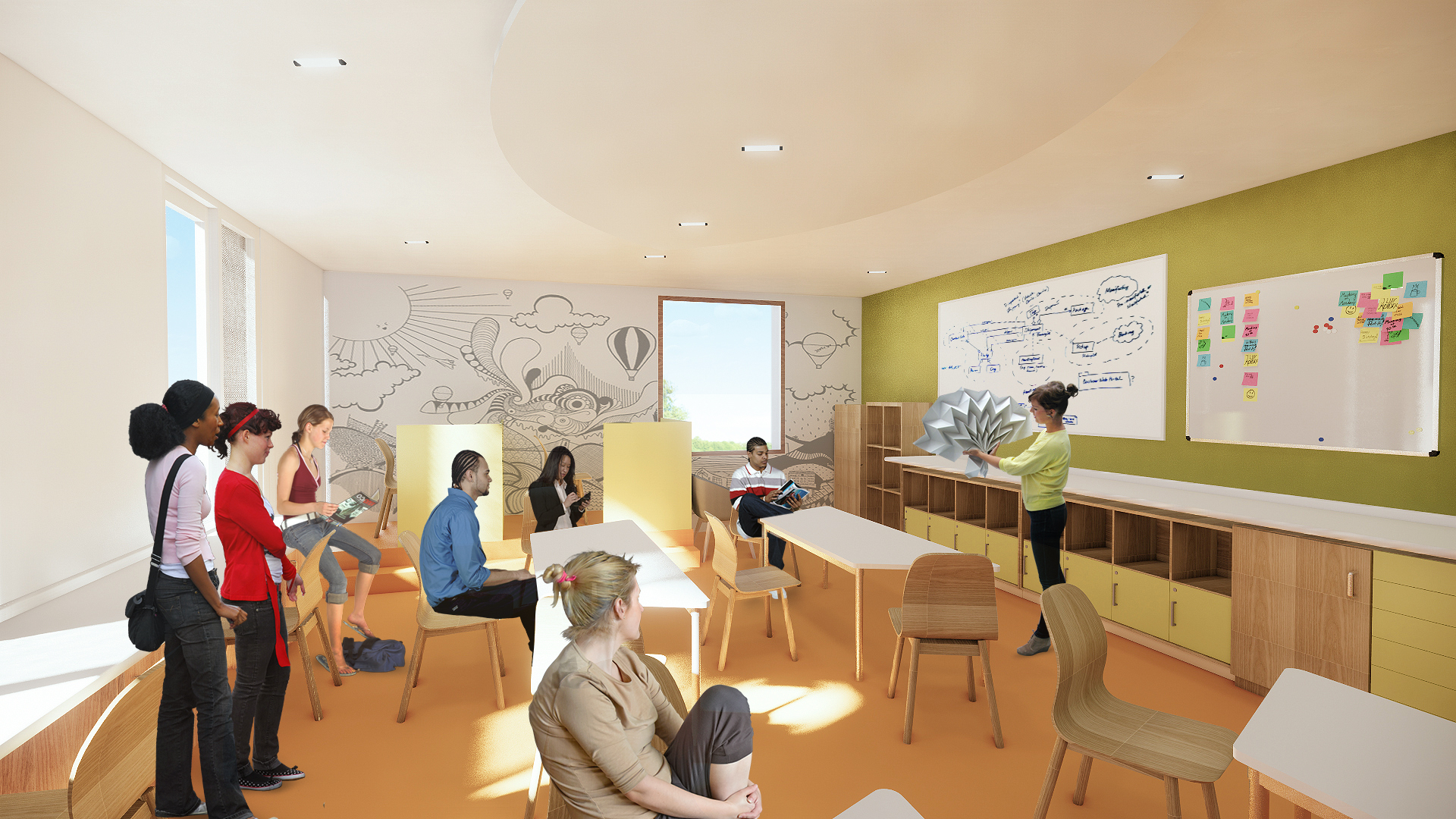The building of a centre providing world-class research and better mental health services for children and young people in London and beyond reached a significant milestone today, with a celebratory ‘topping out’ ceremony attended by young people who helped design the building, local people and dignitaries.
Today’s event marks the completion of the construction of the frame of the £65 million building, partly funded by an ambitious fundraising campaign to address the urgent demands for an increased need in mental health provision for children and young people. It is being built by Integrated Health Projects, an alliance between VINCI Construction UK and Sir Robert McAlpine.
The Pears Maudsley Centre for Children and Young People is due to open in Denmark Hill in 2023. The centre is the result of a “bench to bedside” partnership between South London and Maudsley NHS Foundation Trust, King’s College London and the Maudsley Charity, which aims to transform child and adolescent mental health care through a unique collaboration between world-leading academics and clinicians, which will significantly speed up the time taken to bring research breakthroughs into clinical treatment.
The event included ceremonial pouring of concrete to complete the roof of the eight-storey building and the placement of an evergreen bough – a tradition which dates back to Roman times, when tree boughs were used to protect buildings from evil spirits and bring in blessings from the tree spirits.
Trust Chair, Sir Norman Lamb said:
It is fantastic to see this unique building taking shape, giving an insight into the life-changing facility it is going to become.
The centre will support our local south London community, which has some of the highest levels of deprivation in the country, together with specialist national children’s mental health services that are available to everyone in England.
David Bradley, Chief Executive of South London and Maudsley NHS Foundation Trust added:
After so many years of hard work, it is incredibly exciting to see the Pears Maudsley Centre coming to fruition.
This project is rooted in partnership and collaboration and the Centre will enable us to develop ground-breaking treatments that will transform the lives of children and young people at a time when improving their mental health has never been more important.
The Pears Maudsley Centre will be home to clinicians and academics in the field of children and young people’s mental health from the Trust and from King’s College London’s Institute of Psychiatry, Psychology & Neuroscience (IoPPN), as well as the outstanding Bethlem and Maudsley Hospital School and young in-patients.
It will provide treatment to young people with a range of conditions, from eating disorders and body dysmorphic disorder, to anxiety, ADHD, autism and trauma.
President and Principal of King’s College London, Professor Shitij Kapur, said:
There is no other Centre like this in the world. Bringing together King’s College London’s world class researchers in mental health with clinical expertise, will enable us to find solutions together and change the landscape for children’s mental health.
This will benefit our communities locally and nationally and lead to sharing best practice across the world, influencing global policy and mental health outcomes.
It is this spirit of collaboration, innovation and creativity that will drive the culture at the Pears Maudsley Centre.
The Maudsley Charity, which backs better mental health, has contributed £10m to the project and with the partners, has also generated significant support from charitable foundations including Pears Foundation, the Rayne Foundation and individual donors.
Chief Executive Officer of the Maudsley Charity, Rebecca Gray, said:
Today’s ceremony is another significant milestone for The Pears Maudsley Centre and the partnership behind this innovative development.
But this is more than just a building. With support from philanthropists and the public we can improve mental health outcomes now and for the future. Our commitment is that we can ‘Change The Story’ on children’s mental health – and the centre is the physical embodiment of that vision.
Young patients and their families, as well as researchers and clinicians, have been involved in designing the Pears Maudsley Centre, which features connections with nature as a key aspect of the design through landscaped outdoor terraces and extensive planting on each of the building’s eight floors.
Around half of adult mental health conditions begin by the time a child reaches 14, rising to 75 per cent by the age of 24.









Recent Comments